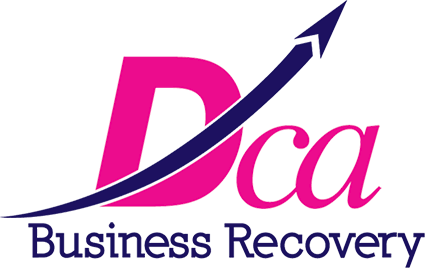“Time to Pay” – Is time running out?
During this recessionary period many companies and sole traders have accrued liabilities to HM Revenue & Customs, as they have cash flow problems and when it comes to paying the PAYE/NIC and VAT, there is little or not enough monies in the bank account to settle the debts as they fall due.
Previously, the more organised businesses have arranged a “Time to Pay” agreement with HMRC, but many have not and these are now facing even more pressure, which may lead to closure of many businesses.
In the past, some businesses have been given up to 2 years to settle crown liabilities, which has had a massive impact on the future of businesses and this is reflected in insolvency statistics.
The demands from the Treasury to maximize tax yield has resulted in HMRC taking an aggressive stance. There has been a significant increase in the rejections of “Time to Pay” requests and we are seeing more winding up and bankruptcy petitions being presented by HMRC.
Accountants are now being asked to prepare more detailed cash flow forecasts which need to be submitted with any request for a “Time to Pay” application. This is placing further strain on businesses, when some are at breaking point.
Figures released by HMRC show that nearly 3,400 “Time to Pay” requests were refused in the first three months of 2011, in comparison to nearly 2,400 in 2010. We need to ask ourselves “Is time running out?”
We are now seeing that if a “Time to Pay” agreement is reached with HMRC then the vast majority of agreements are over a much shorter period of time and are typically over two or three months and not the twelve to twenty four months that we saw when previously.
An increasing number of businesses are not in the position to pay their debt in two to three months and are looking for financial support and assistance from their banks. This is also proving more difficult, as many applications for an increase in facilities, the banks are asking for personal guarantees.
Some may say that businesses in the past that obtained a long period to pay their crown liabilities were extremely lucky and this led to the savings of many businesses that were on the brink of insolvency, and insolvency statistics support this.
With HMRC taking a firmer line and not allowing long periods of time to repay, insolvency figures will increase, as HMRC are not “throwing a life line” to businesses and insolvency figures may go through the roof.
Where does this leave companies and individuals that are unable to pay their crown debts?
It may be better to consult with a Licensed Insolvency Practitioner to discuss whether a Voluntary Arrangement would be suitable. Typically a voluntary arrangement will be over a five year period and without interest being paid. A voluntary arrangement can be proposed for companies, partnerships and individuals.
HMRC have a dedicated team which looks at all proposals for voluntary arrangements and they will vote on the proposal. HMRC will insist on all ongoing crown debts being paid on time and returns file on time.
One question that is always asked is why will HMRC accept a voluntary arrangement over a five year period, when they refused the company a “Time to Pay” application and insisted that monies be repaid over a two to three month period?
The answer is that the voluntary arrangement is monitored by the Licensed Insolvency Practitioner, called the “Supervisor” in the voluntary arrangement. The proposal will typically be based on monthly contributions and will allow the company or individual to only become a few months in arrears. If three or more monthly contributions are not made, then the Supervisor will have to fail the arrangement and then petition for the winding up of the company, or to petition for the bankruptcy of the individual. This then places the onus of monitoring future payments of contributions on the Supervisor and not HMRC and provides some protection for all creditors.
This may give businesses the time to pay their creditors, which would typically include all unsecured creditors and not just HMRC. This will then allow any problems with cash flow to be resolved over a five year period and allow a “Breathing Space” to enable the business to survive, avoiding winding up or bankruptcy, although a voluntary arrangement should not be used as a delaying tactic.
Any creditor pressure will have an affect on any businesses and can be extremely time consuming to deal with and will take the owners “Eye off” of running the business”.
By taking early advice, the chances of failure of any business are minimised. If any of your clients have concerns, DCA offers initial consultation in confidence, without charge, to discuss the various alternatives which are available to protect them, when they are most at risk.
To arrange an informal meeting, please contact Debbie Cockerton on 01702 344558, or take advantage of our “UK Recovery Helpline” which operates 7 days a week, (8am to 8pm) on 0800 066 2544.

